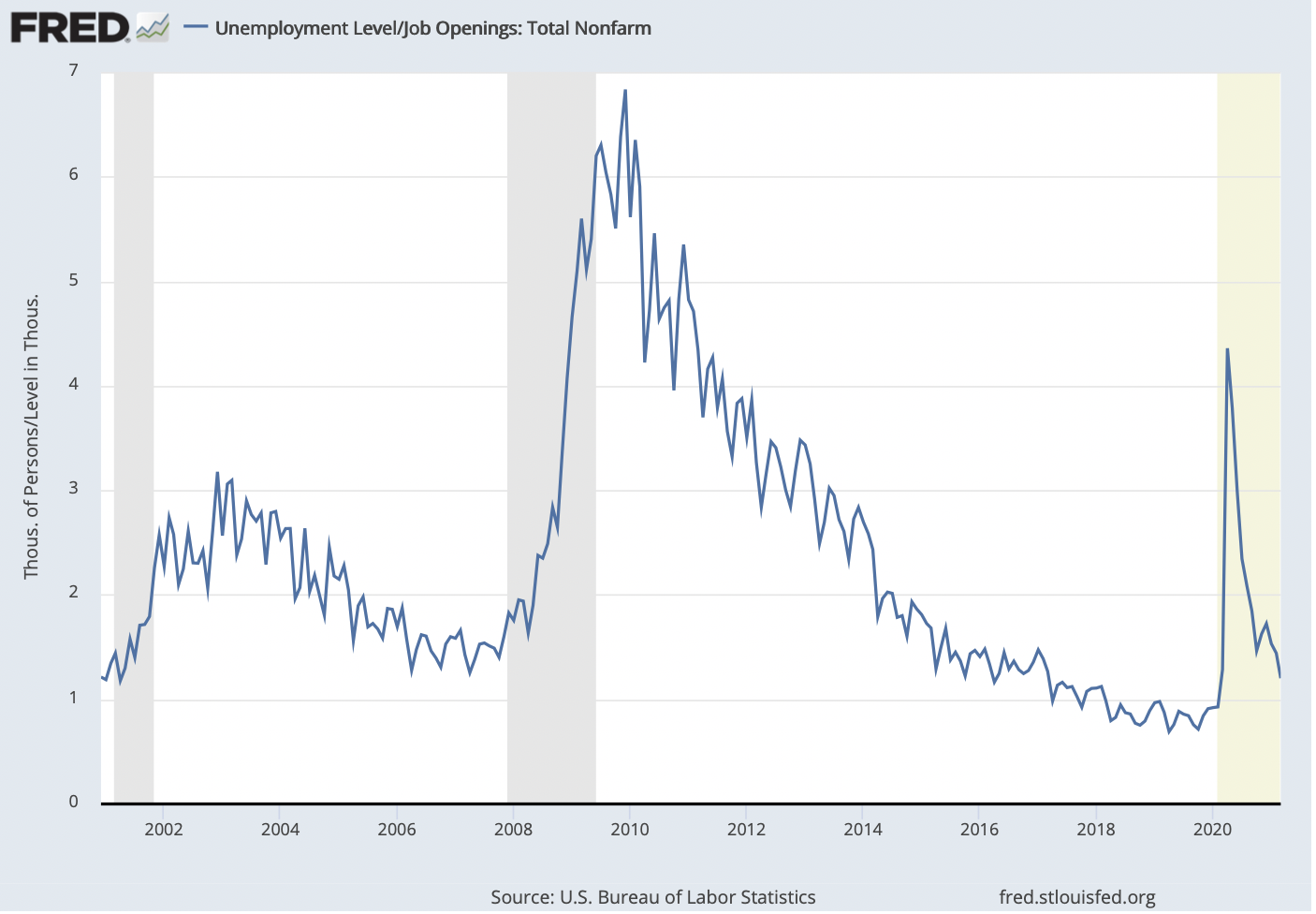
In early May, as the rate of vaccinations was increasing and the U.S. economy was humming back to life, the U.S. Bureau of Labor Statistics released an underwhelming jobs report. With only 266,000 new jobs and a slight rise in the jobless rate, the April number belied almost all the optimistic economic projections that the economy was returning to normal.
The job report was closely followed by a chorus of criticism. Many business groups and Republican leaders took direct aim at the Biden administration’s $300 federal boost in unemployment benefits, arguing that the increased benefits were directly contributing to slow growth and labor shortages. In a press conference, President Biden pushed back at his detractors, saying that enhanced benefits had no bearing on the labor market.
Still, President Biden ordered the Labor Department to ensure that Americans could not access enhanced benefits if they turned down a suitable job, and today, at least 22 states are slated to lower or eliminate their benefits to encourage people to return to work.
All recipients of unemployment insurance (UI) benefits have a substantial work history, and most lost their job through lack of work and no fault of their own. But to remain eligible, recipients are expected to be “able, available, and searching” for work—that is, they must satisfy a work search “test.” Specifics vary by state, but ways of passing the test are broad and include contacting employers, writing a resume, using online search tools, and receiving state-provided reemployment services.
States routinely waive the work search test in recessions, when labor demand is low, then bring it back as the labor market recovers. As the COVID pandemic recedes, states and the Department of Labor have started to bring back work search requirements. Some ask, however, whether it is too soon to reimpose search requirements.
Is it too soon?
This figure (right) shows that for the US as a whole, there were 1.2 unemployed workers for each job opening in March. It also shows that, since US job opening statistics started in late 2000, the ratio of unemployed to openings had been this low only from February 2017 through March 2020—a period characterized by a robust labor market. By this measure, then, we are back to a solid labor market.
Nonetheless, there are large interstate differences in the health of the labor market and vaccination rates, so it could well make sense to continue waiving the work search test in some states. For states with tight labor markets and high vaccination rates, the case for waiving the work search test is weaker.
Search requirements do not lead to worse employment outcomes
Critics of the work search test worry that it pressures UI recipients to accept jobs that are a poor fit, leading to a vicious cycle of bad job matches with low earnings, followed by more unemployment. These critics believe eliminating search requirements would give job seekers more time to find a better job match.
Little empirical evidence supports these claims. Research based on random-assignment demonstrations—the “gold standard” of empirical analysis—shows search requirements do shorten the duration of unemployment, but without reducing subsequent earnings. So, work search requirements do not appear to pressure workers into accepting bad jobs.
These empirical findings make sense because the work search test does not require a UI recipient to accept the first available job offer. Recipients are required to accept only “suitable” job offers—those in line with their training, experience, and location. Data from the U.S. Department of Labor show it is rare for a UI recipient to be denied benefits for refusing suitable work: during the fourth quarter of 2019 (the last quarter before the pandemic struck), about 3,000 UI recipients nationwide were denied benefits because they refused suitable work, compared with 3.1 million newly unemployed workers who claimed benefits in that quarter.
Who benefits from work search requirements?
Could the work search requirement actually help UI recipients? In another analysis of a randomized experiment, two co-authors and I found that, especially for lower-wage workers, search requirements lead to shorter unemployment spells, higher earnings, and longer tenure on the first job after receiving UI benefits. Without search requirements, these workers would have made themselves less attractive to employers by remaining unemployed longer.
Work search requirements are an intrinsic part of UI because UI is a social insurance program, financed by payroll taxes collected from employers, with the main goal of smoothing the consumption of individuals who usually work. UI can and should prevent individuals who are attached to the labor force from falling into poverty, but it is poorly designed to pull individuals who are not attached to the labor force out of poverty. Eliminating the expectation that UI recipients should search for work would lead to longer spells of unemployment and higher cost of the UI program, with no long-term benefit—and possibly harm— to workers. It would also be a step away from UI’s social insurance principles and a step toward transforming UI into an anti-poverty program, which it is not.
______________________________________________________________________________________________________________________







